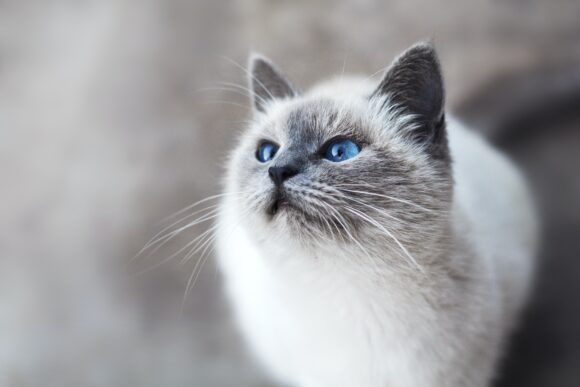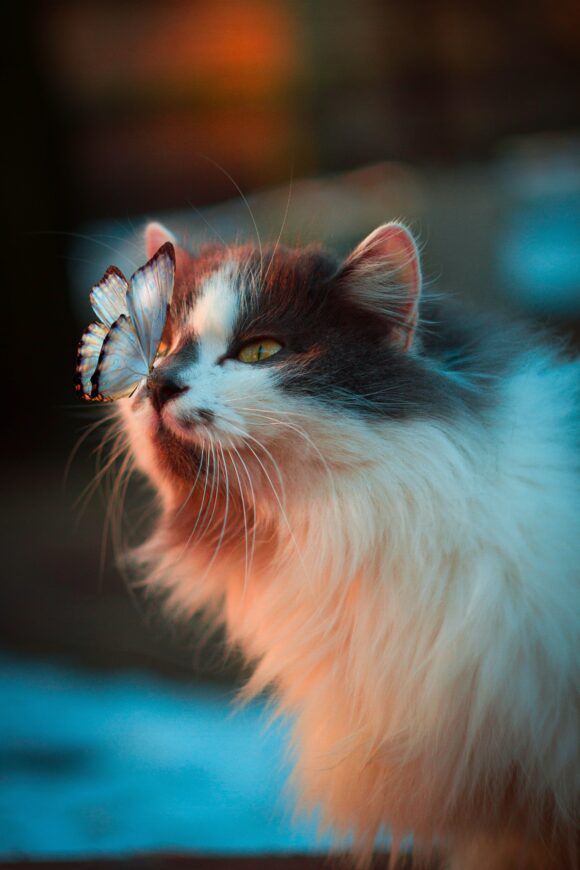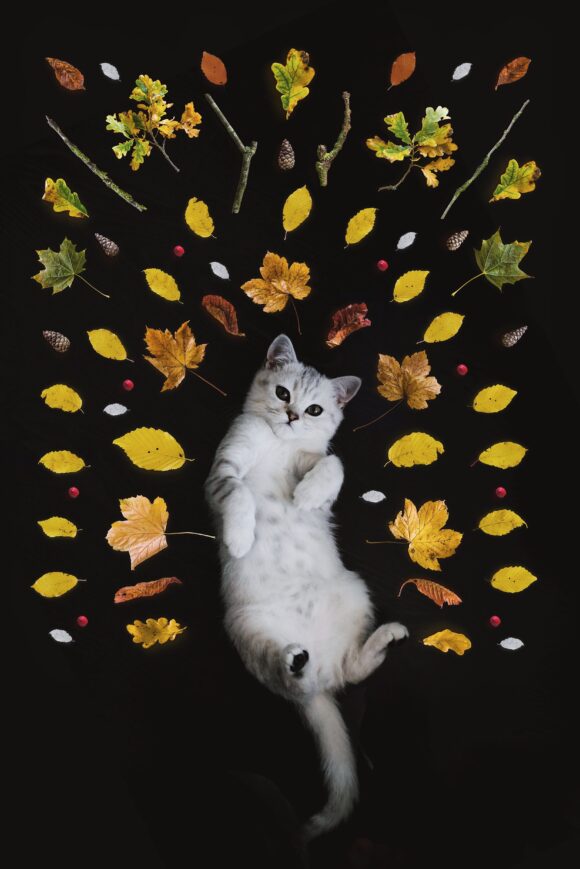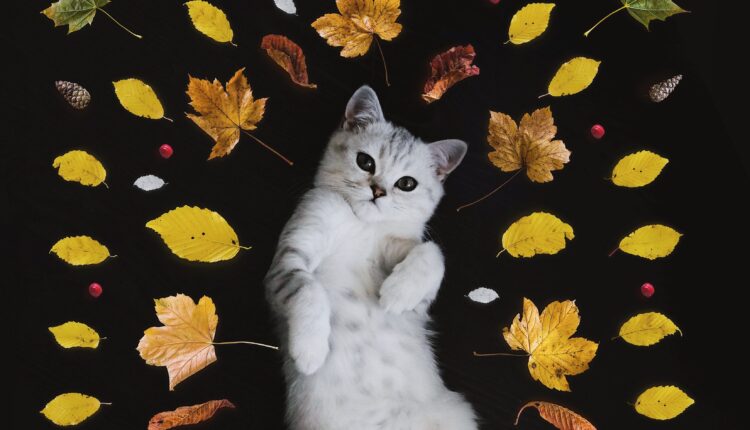Senior Cat Care: A Comprehensive Guide
In “Senior Cat Care: A Comprehensive Guide,” you will find all the essential information you need to provide optimal care for your beloved senior feline companion. This comprehensive guide offers invaluable guidelines on how to ensure the health and well-being of your senior cat, including practical tips on nutrition, exercise, regular health check-ups, and providing a comfortable and stimulating environment. Whether you’ve had your senior cat for years or recently adopted one, this guide is an indispensable resource for providing the best possible care as your feline friend enters their golden years.
Diet and Nutrition
Weight management
As your cat ages, it’s important to keep an eye on their weight to prevent obesity or undernourishment. Speak to your veterinarian about the appropriate portion sizes and types of food for your senior cat. They may recommend a specialized diet that caters to their age and specific dietary needs. Additionally, regular exercise can help maintain a healthy weight and reduce the risk of weight-related health issues.
Special dietary needs
Some senior cats may have special dietary needs due to health conditions such as kidney disease, diabetes, or gastrointestinal disorders. Your veterinarian can provide guidance on the best diet for your cat’s specific needs. They may recommend a prescription diet or certain supplements to ensure your cat receives the necessary nutrients while managing their condition.
Hydration
Senior cats are prone to dehydration, which can be detrimental to their health. Make sure to provide fresh water at all times and consider using a water fountain to encourage your cat to drink more. Wet food can also help increase their hydration levels. If you notice your cat drinking less or showing signs of dehydration, such as dry gums or loss of skin elasticity, consult your veterinarian immediately.
Feeding schedule
Establishing a regular feeding schedule can help maintain your senior cat’s appetite and digestive health. Divide their daily food portion into several small meals throughout the day. This can prevent overeating and aid in digestion. Additionally, feeding your cat at the same time each day helps create a routine and reduces stress or anxiety around mealtime.
Veterinary Care
Regular check-ups
Regular veterinary check-ups are crucial for senior cats to ensure early detection of any potential health issues. Your veterinarian will perform a thorough physical examination, including checking their teeth, ears, and vital organs. They may also recommend blood tests and other diagnostic procedures to monitor your cat’s overall health and detect any underlying conditions.
Vaccinations
While your senior cat may have received vaccinations during their younger years, some vaccinations require booster shots to maintain protection against diseases. Discuss with your veterinarian which vaccinations are necessary for your senior cat. They will take into consideration your cat’s lifestyle, health status, and exposure risks to determine the appropriate vaccination schedule.
Health screenings
In addition to regular check-ups, your senior cat may benefit from health screenings such as blood work and urinalysis. These tests can provide valuable insights into your cat’s organ function, detect signs of potential diseases or age-related conditions, and guide appropriate treatment or management plans. Early detection can often lead to better outcomes and improved quality of life for your cat.
Management of chronic conditions
Senior cats are more prone to developing chronic conditions such as arthritis, kidney disease, or hyperthyroidism. Proper management of these conditions is essential to maintain your cat’s well-being. Your veterinarian may prescribe medications, dietary changes, or alternative therapies to alleviate pain, slow disease progression, and improve your cat’s quality of life. Regular follow-ups with your veterinarian will ensure that the treatment plan remains effective and adjustments are made as needed.

Exercise and Enrichment
Maintaining mobility
Regular exercise is important for senior cats to keep their muscles strong and maintain mobility. Encourage gentle playtime with interactive toys that stimulate your cat’s instincts, but be mindful of their limitations and physical abilities. Engaging in low-impact activities, such as light chasing or short walks, can help keep your senior cat active without putting excessive strain on their joints.
Mental stimulation
To keep your senior cat’s mind sharp, provide mental stimulation through puzzle toys, treat-dispensing toys, or interactive games. These activities can help prevent cognitive decline and alleviate boredom. Consider rotating toys and introducing new ones periodically to keep your cat engaged and interested.
Play and interactive toys
Playing with your senior cat not only provides physical and mental stimulation but also strengthens the bond between you. Choose toys that cater to their age and physical abilities, such as soft toys or feather wands. Interactive toys, such as laser pointers or automated toys, can also provide entertainment and exercise for your cat while you’re away.
Grooming
Brushing and combing
Regular brushing and combing help prevent matting, remove loose fur, and promote a healthy coat for your senior cat. As they age, their grooming abilities may decline, making them more prone to tangled or matted fur. Use a soft brush or comb specifically designed for cats and be gentle to avoid discomfort or skin irritation. Pay attention to any changes in their skin or coat condition and consult your veterinarian if you notice anything unusual.
Nail trimming
Maintaining your senior cat’s nails is essential to prevent them from becoming too long and potentially causing discomfort or injury. Use cat-specific nail clippers or a grinder to trim their nails regularly. If you’re unsure how to trim their nails properly, consult your veterinarian or a professional groomer who can demonstrate the technique and provide guidance.
Dental care
Oral health is crucial for the overall well-being of your senior cat. Brushing their teeth regularly with a cat-friendly toothbrush and toothpaste helps prevent the buildup of plaque and tartar, reducing the risk of dental diseases such as gum inflammation or tooth decay. Your veterinarian may also recommend dental cleanings under anesthesia to address any existing dental issues. Additionally, providing dental treats or toys designed to promote oral hygiene can aid in maintaining your cat’s dental health.
Bathing
Senior cats may require occasional baths to keep their coat clean and healthy. Use a cat-specific shampoo that is gentle and suitable for their skin type. It’s important to follow the instructions and avoid getting water or shampoo in their ears or eyes. If your senior cat has difficulty bathing themselves or becomes too stressed during the process, consider seeking the assistance of a professional groomer who can provide a more comfortable and efficient bathing experience.

Environmental Adaptations
Comfortable resting spots
As your cat ages, they may appreciate having comfortable resting spots that are easily accessible and provide support for their joints. Consider providing soft, padded beds or blankets in warm and quiet areas of your home where your cat can relax and nap without being disturbed.
Orthopedic bedding
For cats with arthritis or joint pain, orthopedic bedding can provide much-needed comfort and support. These beds are designed to alleviate pressure on joints and distribute weight evenly, promoting better sleep and reducing discomfort. Your veterinarian can recommend suitable orthopedic bedding options for your senior cat.
Litter box accessibility
Ensure that the litter box is easily accessible for your senior cat. If they have mobility issues or arthritis, they may struggle to climb into a high-sided litter box. Consider providing a litter box with lower sides or a ramp to aid in their entry and exit. Additionally, keep the litter box clean and well-maintained to encourage regular use.
Access to water and food
It’s important to make sure your senior cat has easy access to water and food throughout the day. Place water bowls in multiple locations around your home to encourage hydration. If your cat has difficulty reaching their food dish, consider using elevated feeding stations or placing their food in easily accessible areas to accommodate any mobility limitations.
Behavioral Changes
Increased vocalization
Senior cats may exhibit increased vocalization as they age. This can be due to various reasons, including cognitive changes, medical conditions, or simply seeking attention. Monitor your cat’s vocalization patterns and consult your veterinarian if you notice any sudden or excessive changes, as it may indicate an underlying issue that requires attention.
Changes in litter box habits
Changes in litter box habits, such as urinating outside the box or avoiding it altogether, can indicate urinary tract problems or other health issues. Keep an eye on your senior cat’s litter box habits and promptly address any changes. Consult your veterinarian, as these changes may be due to medical conditions that require treatment.
Confusion and disorientation
Senior cats may experience age-related cognitive decline, leading to confusion or disorientation. They may get lost in familiar surroundings or have difficulty navigating their environment. Help your cat feel secure by keeping their environment consistent and minimizing changes. Consider adding visual cues, such as differently colored rugs or familiar scents, to help them recognize their surroundings.
Anxiety and stress
Senior cats can experience anxiety or stress due to various factors, such as changes in their routine, new environments, or the presence of other pets. Create a calm and peaceful environment for your cat by providing safe spaces, maintaining consistent routines, and offering plenty of love and attention. If necessary, consult your veterinarian for additional strategies to alleviate anxiety or stress.

Pain Management
Recognizing signs of pain
Cats are masters of hiding pain, but as a responsible pet owner, it’s important to be vigilant and recognize potential signs of discomfort or pain in your senior cat. These signs may include changes in behavior, decreased activity, decreased appetite, excessive grooming of a specific area, or vocalizing when touched. If you suspect your cat is in pain, consult your veterinarian for an evaluation and appropriate pain management options.
Medication options
If your senior cat is experiencing chronic pain, your veterinarian may prescribe medications to alleviate their discomfort. These may include pain-relieving medications, anti-inflammatory drugs, or supplements to support joint health. It’s important to follow the prescribed dosage and discuss any potential side effects or concerns with your veterinarian.
Alternative therapies
In addition to traditional medications, there are alternative therapies that can provide relief for senior cats experiencing pain. These may include acupuncture, laser therapy, physical therapy, or massage. Consult with your veterinarian to determine which alternative therapy options may be suitable for your cat and complement their overall pain management plan.
Comfort measures
Beyond medications and therapies, providing comfort measures can also help alleviate pain for your senior cat. This may include providing heated beds or heating pads to soothe achy joints, using soft bedding to cushion pressure points, or providing gentle massages to promote circulation and relaxation. Discuss these comfort measures with your veterinarian to ensure they are appropriate for your cat’s specific needs.
Cognitive Function
Brain-boosting supplements
Certain supplements, such as omega-3 fatty acids or antioxidants, may support cognitive function in senior cats. These supplements are believed to promote brain health and potentially slow down cognitive decline. Before adding any supplements to your cat’s diet, consult with your veterinarian to ensure they are safe and appropriate for your cat’s specific condition.
Mental exercises
Engaging your senior cat in mental exercises can help keep their mind active and prevent cognitive decline. These exercises may include hiding treats for them to find, teaching them new tricks or commands, or using puzzle toys that require problem-solving skills. Regular mental stimulation can provide your cat with entertainment and help maintain their cognitive function.
Environmental enrichment
Creating an enriched environment for your senior cat can contribute to their cognitive well-being. This can be achieved by providing opportunities for exploration, such as climbing trees or shelves, placing scratching posts or interactive toys throughout the house, or installing window perches to observe the outside world. These environmental changes can stimulate your cat’s senses and prevent mental stagnation.
Monitoring changes in behavior
Cognitive decline in senior cats can manifest in various ways, including changes in behavior. Monitor your cat for any unusual behavior, such as confusion, disorientation, increased aggression, or changes in social interactions. These changes may indicate cognitive decline and should be discussed with your veterinarian to explore management strategies.
Social Interaction
Quality time together
Spending quality time with your senior cat is essential to their overall well-being. Make time for daily interactions, such as gentle play sessions or cuddle time. Provide your cat with undivided attention, affection, and reassurance. These moments of connection help strengthen the bond between you and provide comfort and security for your senior cat.
Introducing new pets or companions
Introducing a new pet or companion to your senior cat should be done with caution and consideration for their individual needs. Some senior cats may not appreciate the presence of other animals, while others may benefit from the companionship. Gradually introduce new pets and provide separate spaces for each animal to ensure everyone feels safe and comfortable.
Attention and affection
Senior cats thrive on attention and affection. Make it a point to regularly interact with your cat through gentle petting, brushing, or engaging in activities they enjoy. This not only provides physical and emotional comfort but also helps relieve stress and anxiety. Be observant of your cat’s body language and adjust your interactions accordingly, ensuring that they are always comfortable and receptive.
Providing a routine
Establishing a routine for your senior cat can provide a sense of security and stability. Stick to consistent feeding times, play sessions, and cuddle times. Additionally, maintain a stable environment with predictable daily activities. Cats are creatures of habit and feel most at ease when they can rely on a consistent routine.
End-of-life Care
Considering quality of life
As your senior cat approaches the end of their life, it’s important to consider their quality of life. Monitor their overall well-being, including their physical comfort, ability to engage in meaningful activities, appetite, and overall enjoyment of life. Consult with your veterinarian to assess your cat’s condition and discuss options for end-of-life care.
Palliative care options
Palliative care focuses on providing comfort and pain management for senior cats with serious or terminal illnesses. This may include medication adjustments, hospice care at home, or additional support to address symptoms and enhance their quality of life. Your veterinarian can guide you in developing a personalized palliative care plan that meets your cat’s specific needs.
Euthanasia
Euthanasia is a difficult decision that pet owners may face when their senior cat’s quality of life has significantly deteriorated, and they are experiencing severe pain or suffering. Consult with your veterinarian to discuss the options, benefits, and considerations surrounding euthanasia. They can guide you through the process and ensure your cat’s passing is peaceful and dignified.
Grief and bereavement support
Losing a beloved pet is a challenging and emotional experience. It’s important to seek support and understanding during this time. Reach out to your veterinarian, local support groups, or online communities dedicated to pet loss and bereavement. These resources can provide solace, guidance, and a safe space to express your emotions as you navigate the grieving process.
Taking care of a senior cat requires attention to their unique needs and adapting to any changes in their health or behavior. By providing proper nutrition, regular veterinary care, mental and physical stimulation, grooming, a suitable environment, pain management, cognitive support, social interaction, and understanding end-of-life care, you can ensure your senior cat enjoys a comfortable and fulfilling life throughout their senior years. Remember to consult with your veterinarian for personalized advice tailored to your cat’s individual needs and consider seeking professional help or guidance whenever necessary. Your commitment to senior cat care will undoubtedly make a significant difference in their overall well-being and happiness.


